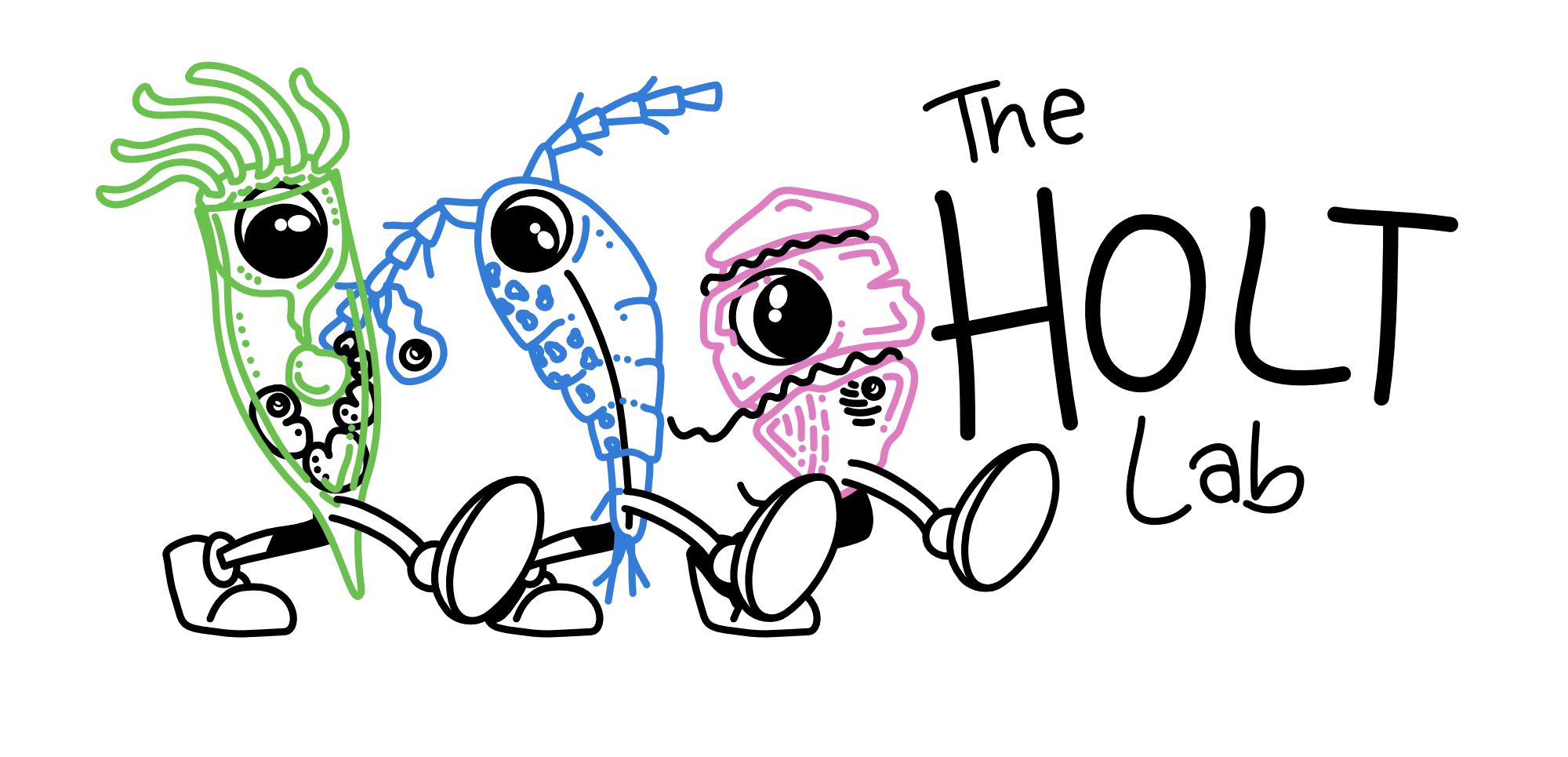This is a living document which details the values and expectations of The Holt Lab. I anticipate this to change and grow with the lab. Anyone thinking about joining our team should ensure they are happy to support the principles outlined in this document. Many of the policies discussed here are based on those from the Meren lab and Hammond Lab.
The Holt Lab welcomes all identities, be those related to gender, race, ethnicity, socio-economic status, sexuality, disability, etc. Discrimination will not be tolerated. All lab members are encouraged to recognise their own biases and carefully consider how their actions impact those around them.
Corey’s commitments.
- I will endeavour to keep everyone feeling happy, safe, and productive.
- I will do everything I can to support your professional development and personal goals.
- If my door is open, you are welcome to walk into my office and ask me anything.
- I will block at least 1 hour each week for a private meeting with every lab member. These are not mandatory (although I would like to see you at least once every 2 weeks). You are welcome to schedule more time if needed.
- I will not micro-manage you or your project. Once we have established a set of shared goals within a broader framework, it is up to you to push the project forward. I would, however, like regular updates and I am available if/when you need me.
- I will do my best to get you all the resources you need to succeed.
General Principles.
- All lab members must treat everyone with respect.
- There is no shame in asking for help.
- Life exists beyond the four walls of the lab or your office. Please take holidays. Please find something outside of work that you enjoy. Please spend time with your friends and family. Look after your physical and mental health and you will be a better scientist for it.
- Integrity is everything. As a lab, we must demonstrate that the data we generate are reliable, and the analyses we conduct are fair and accurate. This is achieved through proper study design, thoughtful experimental work, and thorough analysis. It is not achieved through scientific misconduct. Data manipulation will not be tolerated.
- Mistakes happen. Whatever it is, let’s talk about it. Mistakes are often a great opportunity for growth. At minimum, it will prevent other lab members from doing the same thing.
- Clean up after yourself!
- Treat all animal samples with dignity.
- All lab members are required to keep detailed notebooks, documenting methods, protocols, and metadata.
- Everyone is expected to attend the weekly lab meeting. Please let Corey know if this is not possible.
- Collaborations with people outside the lab are welcomed but must be discussed with Corey beforehand.
- Do not ignore alarms in the lab. If you are unsure how to respond, ask someone. If no one is around, contact Corey.
Lab Meetings.
- Lab meetings take place once a week. They are informal and intended to be a forum for open discussion. Please be receptive. Each meeting consists of 5-minute updates from each lab member and a 30-minute presentation by one member.
5-minute updates can be anything. Tell us about a problem you have, show us your holiday pictures, recruit us to your book club. 30 minute presentations follow a predetermined rotation according to the Lab Meeting Schedule.
Writing and Publishing.
- First-authors will produce the first draft of a manuscript. Writing can be difficult. Take your time. It is important that you find your personal style, and this comes with practice. A first draft does not need to be perfect, but it does need to be finished. It will inevitably undergo a lot of changes. This can sometimes be disheartening, particularly if you are new to writing papers, but try not to take this personally. It’s all about working together to find the right words.
Data Sharing.
- All sequencing data we produce will be made publicly available in open repositories at the point of publication. This includes (but is not limited to) uploading raw reads to the Sequence Read Archive (SRA); amplicons and all associated project/sample metadata to GenBank; images, alignments, and tree files to Figshare.
- All custom software should be uploaded to the lab Github repository.
Conflict Resolution.
- Disagreements are normal but all interactions within the lab should be respectful. A strained relationship can be disruptive to your progress and affect the daily lives of others. If you are having issues with someone in the lab, you are both encouraged to communicate with each other and try to find common ground. If this doesn’t work, please speak to Corey. If your conflict is with Corey and we cannot reconcile an issue, we will ask an independent faculty member to arbitrate.
